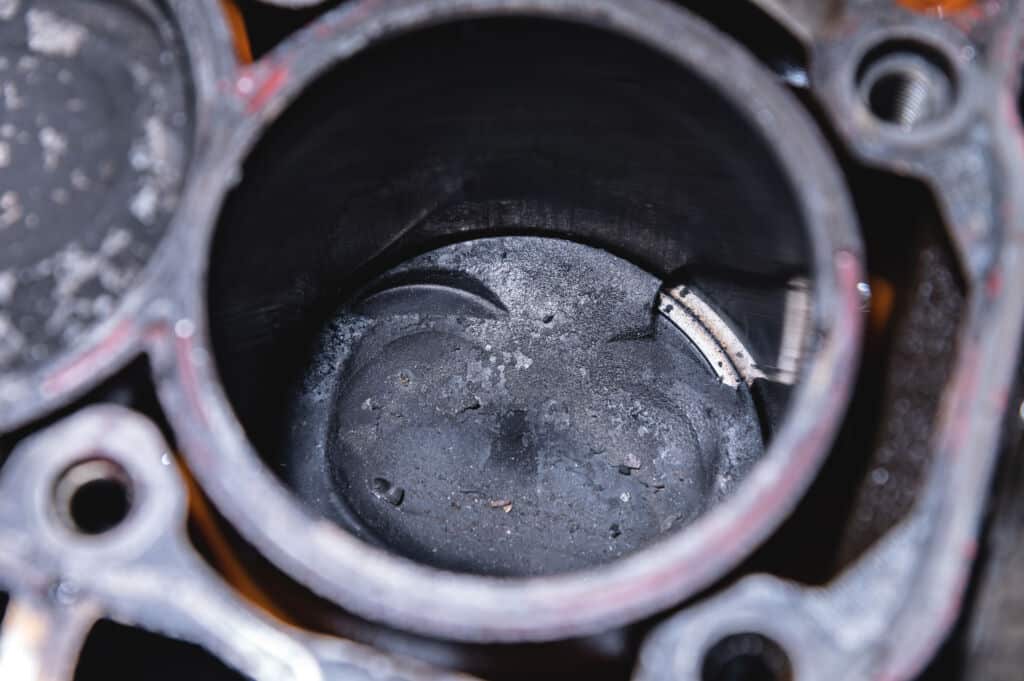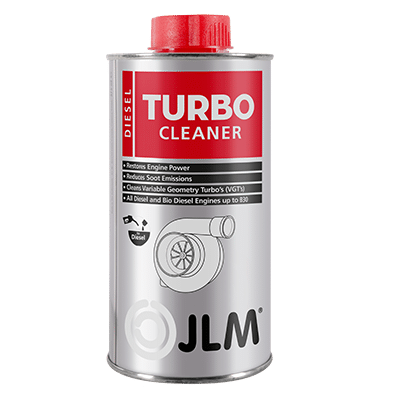Carbon buildup in engine components is one of the most common causes of performance issues in modern vehicles, especially those with direct injection and turbocharged systems. Understanding what causes this buildup and how to fix or prevent it can save you from costly repairs and engine damage.
What causes carbon buildup in your engine?
Carbon deposits, also known as carbon buildup or carbon fouling, are residues of incomplete combustion that accumulate on various engine components over time. They are primarily composed of carbonaceous materials, including unburned hydrocarbons, soot, and other combustion byproducts. Whilst carbon deposits can form in any internal combustion engine, they are particularly prevalent in modern cars equipped with direct injection systems and turbochargers.
Signs to look out for: How to check carbon build up in engine components
Not sure if your car is affected? Here are common signs that indicate carbon build up in your engine:
1. Decline in engine performance
One of the most noticeable effects of carbon deposits is a decline in engine performance. These deposits can accumulate on intake valves, throttle bodies, and fuel injectors, impeding airflow and fuel delivery. As a result, the engine may experience symptoms such as decreased power output, rough idling, hesitation during acceleration, and overall sluggishness. Drivers may notice that their vehicle feels less responsive and struggles to perform as it once did.
2. Poor fuel economy
Carbon deposits not only affect engine performance but also impact fuel economy. When deposits obstruct fuel injectors and combustion chamber surfaces, fuel atomisation and combustion efficiency are compromised. Due to this, the engine may consume more fuel than necessary to produce the same amount of power, leading to decreased fuel economy and increased operating costs for the vehicle owner.
3. Increased emissions
In addition to affecting engine performance and fuel economy, carbon deposits can contribute to higher emissions of harmful pollutants. Incomplete combustion caused by deposit buildup can result in elevated levels of carbon monoxide (CO), hydrocarbons (HC), and nitrogen oxides (NOx) in the exhaust gases. This not only jeopardises air quality but also increases the likelihood of the vehicle failing emissions tests during an MOT and facing regulatory scrutiny.
4. Engine knocking and pinging
Carbon buildup on combustion chamber surfaces can increase the risk of engine knocking and pre-ignition. This can lead to engine damage if left unaddressed, potentially resulting in costly repairs or even engine replacement. Ignoring the problem can result in reduced engine reliability and durability, compromising the overall performance and lifespan of the vehicle.
5. Turbocharger and exhaust system issues
Turbocharged engines are particularly susceptible to carbon deposits, which can accumulate on turbocharger components such as the turbine blades and wastegate mechanism. This deposit buildup can impair turbocharger efficiency and responsiveness, leading to reduced boost pressure and compromised engine performance.
Additionally, carbon deposits in the exhaust system, including the catalytic converter and oxygen sensors, can hinder their functionality, resulting in decreased exhaust treatment efficiency and potential catalyst damage.
6. Idle and start-up problems
A buildup of carbon deposits can also affect idle speed control and engine start-up. Deposits on idle air control valves and throttle bodies can disrupt idle stability, causing the engine to idle erratically or stall unexpectedly. Similarly, deposits on fuel injectors can interfere with fuel delivery during engine start-up, resulting in difficulty starting the engine or rough running until it reaches operating temperature.

How to fix carbon buildup in engine systems
Fortunately, there are steps that vehicle owners can take to prevent and address carbon deposit-related issues:
- Use fuel additives: Products like JLM’s advanced fuel system cleaners can dissolve carbon deposits and restore performance.
- Professional cleaning: If buildup is severe, a qualified technician may need to disassemble and clean key engine parts manually.
How to avoid carbon buildup in engine systems
Here’s how to avoid carbon build up in engine parts:
- Regular maintenance: Stay on schedule with oil changes and inspections to catch issues early. Use JLM’s fuel additives every few thousand miles to keep the system clean.
- Use high-quality fuels and engine oils: Opt for premium fuels and engine oils that contain detergents and additives designed to minimize deposit formation and maintain engine cleanliness.
- Drive responsibly: Avoid aggressive driving habits that can contribute to accelerated carbon buildup, such as frequent rapid acceleration and deceleration.
- Cool down turbocharged engines: Allow turbocharged engines to idle for a few minutes before shutting them off to prevent oil coking and carbon buildup in the turbocharger.
Stay ahead of carbon buildup problems
Carbon build up in engine components is more than just a minor issue—it can lead to major mechanical failures if ignored. Knowing how carbon builds up in your engine and taking steps to check, fix, and avoid carbon build up in engine systems can keep your car running smoothly and efficiently.
Explore JLM’s range of professional-grade additives to help prevent and resolve carbon buildup before it becomes a costly problem.

